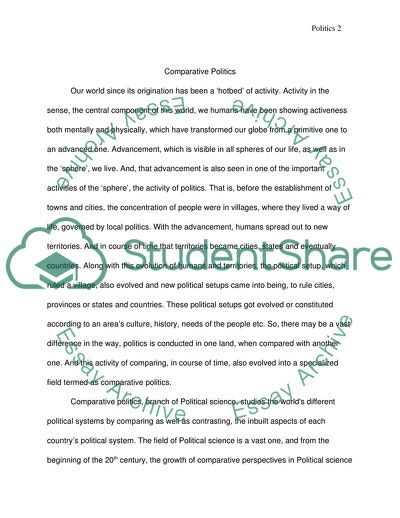Cite this document
(Studying Comparative Politics Essay Example | Topics and Well Written Essays - 2500 words, n.d.)
Studying Comparative Politics Essay Example | Topics and Well Written Essays - 2500 words. https://studentshare.org/politics/1706843-comparative-politics
Studying Comparative Politics Essay Example | Topics and Well Written Essays - 2500 words. https://studentshare.org/politics/1706843-comparative-politics
(Studying Comparative Politics Essay Example | Topics and Well Written Essays - 2500 Words)
Studying Comparative Politics Essay Example | Topics and Well Written Essays - 2500 Words. https://studentshare.org/politics/1706843-comparative-politics.
Studying Comparative Politics Essay Example | Topics and Well Written Essays - 2500 Words. https://studentshare.org/politics/1706843-comparative-politics.
“Studying Comparative Politics Essay Example | Topics and Well Written Essays - 2500 Words”. https://studentshare.org/politics/1706843-comparative-politics.


